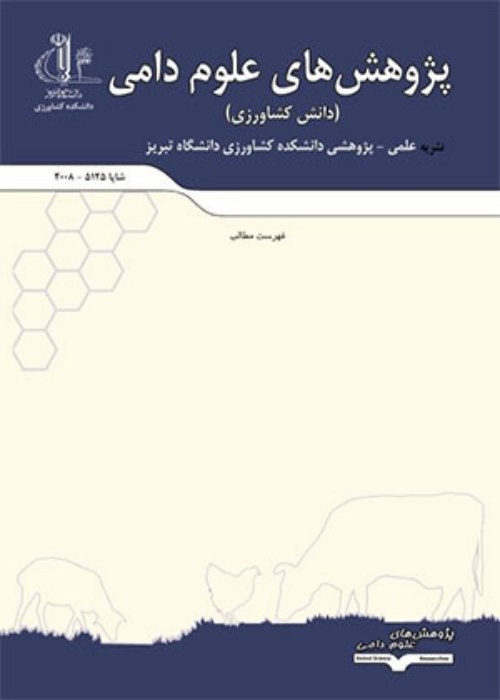Effects of dietary inclusion of cinnamon and thyme on performance and nitrogen retention of broilers fed with different levels of protein
Protein sources are high cost feedstuffs in poultry diets. Additionally, nitrogen excretion is an important challenge in intensive animal production systems (Abd El-Hakim et al. 2009). Hence, application of low protein diets (LPD) in poultry nutrition has been received more attention in recent years. Dietary level of crude protein in starter, grower and finisher phases of the rearing period of broilers could be reduced by 10% from the NRC (1994) recommendation levels, without adverse effects on their performance. Although, LPD have some advantages, they may negatively influence broilers performance (Aftab et al. 2005). On the other hand, dietary inclusion of antibiotic growth promoters has been banned in many countries of the worlds. Thus, different organic feed additives including herbs have been proposed as alternatives to antibiotics. Herbal plants have positive effects on immunity, gut microflora and performance of broilers (Gou et al.2004a, b; Franco-Jimenez et al 2007). Different studies have been conducted on the effects of thyme (Thymus vulgaris) and cinnamon (Cinnamon zeylanicum) on broilers. Due to high levels of active compounds such as thymol and carvacrol in thyme (Mikaili et al. 2010) and cinnamaldehyde and ugenol in cinnamon (Gruenwald et al. 2010) they can beneficially influence broilers (Hernandez et al. 2004; Al-Kassie 2009; Shirzadegan 2014). Positive effects of thyme (Hernandez et al. 2004) and cinnamon (Al-Kassie 2009) on protein digestibility and utilization have been reported. Considering these beneficial consequences, it could be hypothesized that dietary inclusion of those herbs can reduce the negative effect of LPD in broilers.
Material and
A total of 480 1-d-old male and female Cobb 500 broiler chicks were obtained from a commercial hatchery and transferred to rearing place. The experiment was conducted as a completely randomized design in a 2×4 factorial arrangement with two levels of dietary crude protein (NRC recommendation and 85% of NRC recommendation) and four feed additives (without additive, 0.5% thyme powder. 0.5% cinnamon powder and a mixture of 0.5% thyme and 0.5% cinnamon). Each experimental treatment had 3 replicates with 20 birds each. All birds had free access to feed and water and reared under same management conditions on floor pens until 42 days of age. Isocaloric starter (d 1-21) and finisher (d 22-42) diets were formulated to meet or exceed the NRC (1994) nutrients requirements (except for crude protein and essential amino acids). At the end of the experiment, 6 birds (3 males, 3 females) from each treatment were transferred to separate cages and given diets containing 0.3 % Cr2O3 as an indigestible marker for 5 days and excreta were collected. Feed samples and excreta were analyzed (AOAC 1990) to determine nitrogen retention (Woodworth et al. 2011).
The results indicated that dietary protein level had no significant effect on starter (d 1-21), finisher (d 22-42) and overall (d 1-42) feed intake (P> 0.05). From 22 to 42 d of age, birds fed diets containing 85% of NRC had less body weight gain than those fed recommended level (P 0.05). Similarly, other previous researchers (Amozmehr and Dastar 2009; Sadeghi et al. 2012; Salimian et al. 2016) did not find positive effect of herbs on broilers performance. Numerous factors such as additive dose, type, delivery method, duration, feedstuffs quality, birds characteristics (age, sex and production), rearing condition particularly farm hygiene status and stress level can affect broilers response to feed additives. Moreover, herb species, harvest time, plant maturity, drying method, storage time, chemical and physical condition of the soil influence the level of active compounds in herbs and thus play important role in this case (Burt 2004; Bakkali et al. 2008; Amozmehr and Dastar 2009; Salimian et al. 2016). Taking together, inconsistent results could be related to all stated factors. There was no significant interaction between dietary protein level and additives for performance traits. It means that broilers response to feed additives was not influenced by dietary protein level. Nitrogen retention was higher in birds fed NRC recommended level of protein than those fed 85% of NRC recommended level. This result is in line with Malomo et al (2013) who reported that lowering protein level reduced nitrogen retention in broiler chickens. A significant interaction between dietary protein level and feed additives was observed for nitrogen retention. Nitrogen retention was significantly improved in birds fed low protein diets supplemented with a mixture of cinnamon and thyme and was similar to birds fed recommended levels of protein (P
A significant reduction in broilers performance was observed when dietary protein level was reduced by 15%. Dietary supplementation with thyme and cinnamon had no significant effect on broilers performance but addition of their mixture to low protein diet significantly improved nitrogen retention.
Broiler , Cinnamon , Performance , Protein , Thyme
- حق عضویت دریافتی صرف حمایت از نشریات عضو و نگهداری، تکمیل و توسعه مگیران میشود.
- پرداخت حق اشتراک و دانلود مقالات اجازه بازنشر آن در سایر رسانههای چاپی و دیجیتال را به کاربر نمیدهد.



